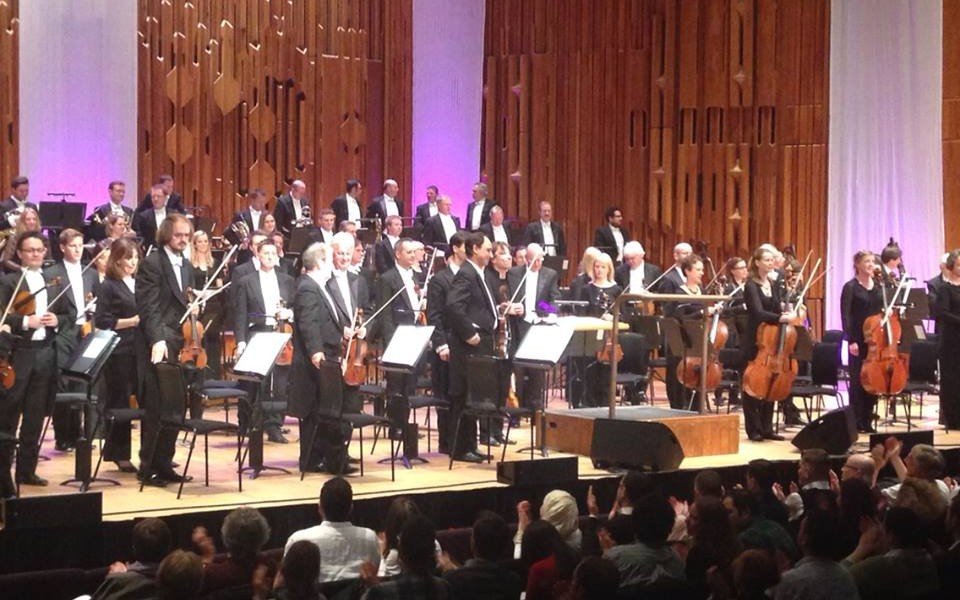It goes without saying that concerts featuring any kind of crossover element tend to drag, but on the night of 24 April at the Barbican this adage, and a piano lift, were stretched to their maximum.
Kicking off proceedings at London’s brutalist Barbican Centre was Arvo Pärt’s Fratres (“Brethren”), here in its strings and percussion guise, a richly harmonic and yet decidedly formulaic work, combining fervent activity and great stillness and was performed as I’d never quite heard it before. The piece is founded on eight or nine chords and founded on a deep, low drone, which harkens back to the traditions of Russian Orthodox male choirs. In what some would consider musically questionable, conductor Kristjan Järvi noticeably slowed the pace and the piece lost a lot of its severity. It’s always refreshing to hear familiar works re-interpreted, but in this case, I can’t but help thinking that some of those of not such intimate terms with Fratres would have missed out on hearing it more traditionally played.
Up next was Pärt’s third symphony, the only piece to emerge from the composer’s self-imposed creative exile of the 1960s. A fusion of elements of Gregorian chant, his Russian Orthodox faith and harmonic simplicity, the work is dedicated to Neeme Järvi, the father of conductor Kristjan. Again, the piece is one which would benefit from a hard-headed and sober approach but Järvi conjured up a dreamy and visionary performance which blurred out much of the simplicity of Pärt’s style. Where one was hoping for tight strokes of clarity, there were unnecessary adornments. Nevertheless, Järvi is an engaging and dynamic presence and if he managed to convert some of the many world music lovers present for part two of the evening, then it’s definitely a good thing.
If you’ve ever wondered whether it is an easy task to manhandle a grand piano onto the stage of the Barbican concert hall, I can tell you that it is no mean feat. Due to the breakdown of the piano lift, a dozen or so hardy and beefy chaps were enlisted in order to undertake the task of relocating this mammoth instrument to its rightful place. After a few Laurel and Hardy-ish scrapes, the piano was in place enabling its (Estonian) musician Kristjan Randalu to perform.
The theme of the evening was spirituality, ostensibly the link between the works of Pärt and those of Dhafer Youssef, a Tunisian composer, vocalist and player of the oud (similar to a lute and an ancestor of the modern guitar), and his ensemble. The programme notes event went so far as to suggest a direct link between Pärt and Youssef, which I confess was lost on myself.
Youssef is an unashamed showman, and his performance was, at times, a kitch, over-the-top display of flamboyance, the only highlight for me being Randalu’s excellent performance on the piano. As a vocalist, Youssef has a pleasing enough voice but it was marred by the distraction of a digitally enhanced echo. Järvi and the LSO were relegated to providing the accompanying sounds which they did as well as could be expected.
After the rapturous encore, I was definitely of the opinion that the evening was tailored more to the world-music and jazz cross-over crowd. The Estonians I was sitting near left after 15 minutes of the second half and I was tempted to join them. The evening mirrored the day’s weather – sunny spells early on but ended decidedly overcast.
I
Cover photo: LSO performing at the Barbican Centre in London. Photo by Chris Glew.

